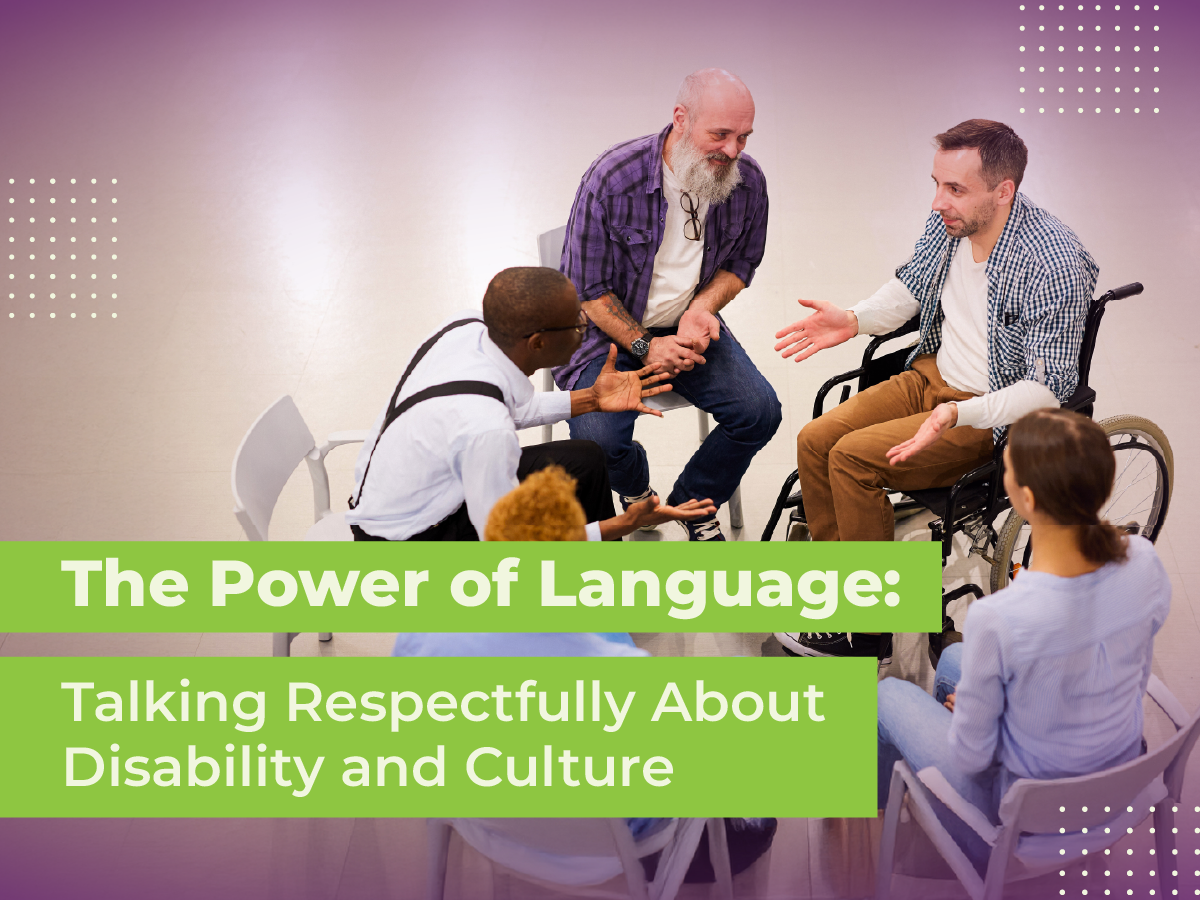The Power of Language: Talking Respectfully About Disability and Culture

Words carry weight. They shape how people are seen, how they are heard, and how they understand themselves. Language has the power to harm, but it also has the power to heal.
For people with disabilities, language often sets the tone of interaction. It can open a conversation, or close it. It can reflect respect, or reduce a person to a label.
The same is true for culture. Identity is shaped through language. How we name, describe, and listen reflects what we value.
Seeing the Person First
Language reflects perspective. Saying “a person with a disability” centers the person, not the diagnosis. Describing someone as “nonverbal” or “neurodivergent” offers information, not limitation.
These choices matter. They help people feel recognized, not reduced.
Some individuals prefer identity-first language. Others prefer person-first. The difference is not always visible. Asking is respectful. Following is responsible.
Language as Invitation
When we speak with care, we make space for trust. A word adjusted with intention can change how someone feels in a room, on a team, or in a conversation.
Cultural identity adds another layer. Names, traditions, expressions—each carries meaning. Mispronunciation or mislabeling may seem small, but the impact is often deep.
Listening fully helps prevent harm. So does humility. Language should be guided by those who live the experience, not by assumptions around it.
Language That Learns
Words evolve. What felt acceptable twenty years ago may no longer reflect community values today. This is not about being perfect. It is about being willing to adapt.
Learning does not always mean correction. It often begins with curiosity. A moment of pause. A genuine question. A change that shows respect.
This is how culture grows. This is how people feel seen.
Every Word Builds or Breaks Trust
The words we choose in everyday moments matter. Introductions. Descriptions. Policies. Public spaces.
When we speak with care, we affirm the dignity of others. When we stay curious, we avoid assumptions.
Language does more than communicate. It creates experience. With the right words, we help build a world that recognizes difference, honors identity, and invites everyone to speak for themselves.
.svg)
.jpg)
